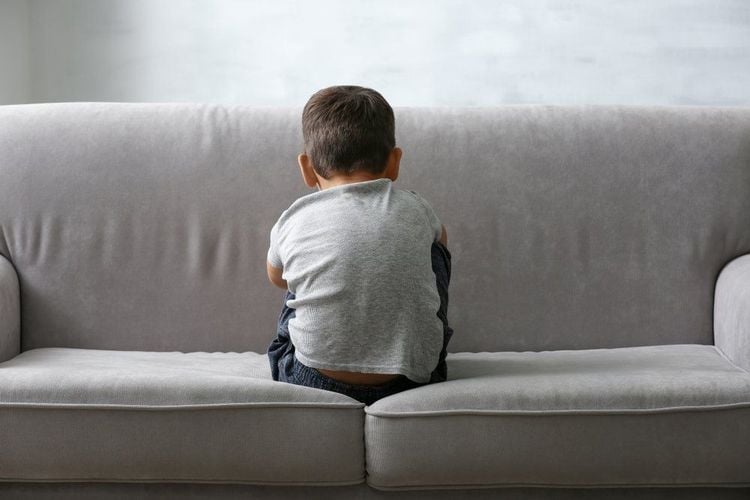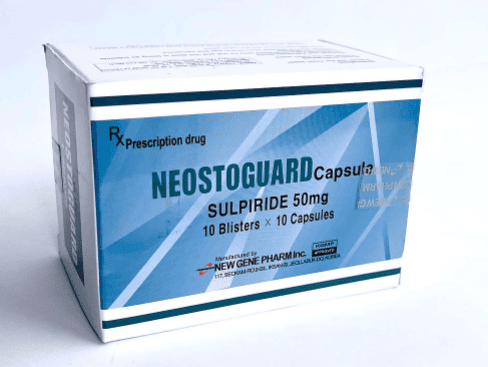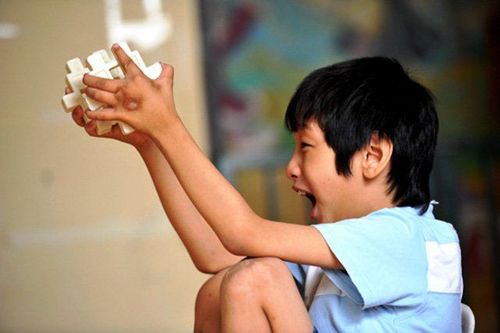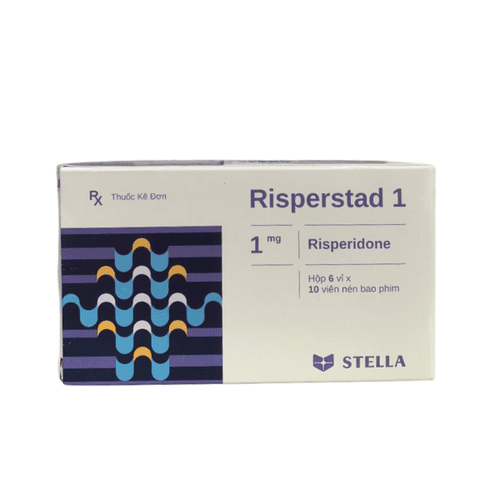This is an automatically translated article.
Alternative therapies, also known as complementary therapies, include medications or methods commonly used in the treatment of autism in children, along with other usual medical care. Most people use a variety of terms, and many parents of children with autism spectrum disorder have tried several alternative approaches when conventional treatments don't seem to work. The article will provide information related to the therapies that can treat autism for children that parents need to know.
1. Should parents try alternative therapies for children with autism?
Actually there is no definite answer to the above question. Many families struggling with autism are eager to try anything that can help their child. But alternative therapies are particularly complicated because no one knows exactly why they work — or why they don't.
Kristin Sohl, medical director of the Thompson Center for Autism and Neurodevelopmental Disorders at the University of Missouri, says: “I tell families of children with autism that I understand their interest in finding medication. to replace. "I would say that's fine. However, there's no such thing as an alternative treatment that's proven to be absolutely effective."
But some alternative therapies eventually became mainstream accepted treatments. For example, applied behavioral analysis (ABA) started to be applied as an alternative therapy in the treatment of autism in children and now, after much research, it is seen as a standard approach.
ABA uses techniques such as positive reinforcement to modify a child's behavior. It used to be controversial, but the method is now supported by insurance laws in nearly 40 states in the United States. Despite loopholes in the law and claims by some insurance companies that behavioral analysis is still experimental, some parents have sued for insurance. “People used to think ABA was a strange practice in the 1970s,” says Susan Hyman, professor of pediatrics at the University of Rochester Medical Center and chair of the autism subcommittee of the American Academy of Pediatrics. and 1980. Therapies such as ABA have been carefully tested in numerous studies involving large numbers of patients, and the results are carefully reviewed by experts before being published in reputable journals.
On the other hand, most alternative therapies have only been investigated in a small number of studies, not evidence enough to prove that a treatment is effective. In addition, errors in study design, misinterpretation of results, researcher bias or too few participants are common problems.

Bố mẹ có nên thử các liệu pháp thay thế cho trẻ tự kỷ không?
Safety is another concern when using alternative therapies in the treatment of autism in children. With some treatments, experts aren't sure what's safe. For example, supplements - such as vitamins, melatonin and omega-3s - are not as regulated as prescription and over-the-counter drugs. Even when supplements can be helpful, experts may not know the right dose, especially for children, or whether the supplement could interact with other medications.
And there is growing concern that dietary supplements may not contain the ingredients they are intended to use and may even be made from undeclared ingredients, including some harm to children. The third problem is cost. Spending money to treat but not bring results will be wasteful. Health insurance usually doesn't cover unproven therapies, so it may be out of pocket.
2. How do I know if an alternative therapy is worth trying?
Before trying an alternative therapy, ask your doctor if it is safe and worth trying. Doctors are not generally opposed to trying alternative therapies in the treatment of autism in children, as long as they do not appear to be harmful or interfere with conventional treatment. And if parents decide to try a particular therapy, contact their child's doctor so they can coordinate care with the family.
Do not try more than one new therapy at a time. If so, there's no way to gauge which therapy is working or is causing side effects, if any. Talk to your child's doctor with autism to determine how long to try each therapy.
Sohl says: “Many families go to a full service provider and buy a few things. "Then they'll be in a mess, paying thousands of dollars a month but with no way of knowing if any therapy is working." Take careful notes so you can see if the treatment is working. Write down any changes in symptoms in your child with autism or other possible effects of treatment.
In conclusion, parents of children with autism need to study alternative treatments with a careful and serious eye. Be wary of claims that alternative therapies work very well.

Liệu pháp thay thế nào an toàn với trẻ tự kỷ
3. What alternative therapies for autism are safe and worth trying?
Sensory therapy
Many children with autism find themselves uncomfortable with loud sounds, bright lights, and touch. Sensory occupational therapy involves gently exposing children through touch, movement, sound, or scent to ease symptoms of autism.
In several small studies, children with autism have shown improvements in self-care and changes in certain social behaviors, along with a decrease in overreacting to stimuli. There is no harm in doing sensory therapy. A trial period can help you decide if it works for your child.
Music therapy
For some children, music therapy can be fun and engaging. Proponents say it affects many areas including communication, motor skills, cognitive skills, emotional expression, and can be combined with conventional therapies such as ABA.
There is very little quality research on the effectiveness of music therapy. There is not much evidence that music therapy can help with communication and social behavior. Combining music with conventional therapies can reduce stress and anxiety. It can also be enjoyable for both parents and children.
Children who are particularly sensitive to noise may not like this approach. If music therapy is used, parents should contact a therapist who can manage any hearing sensitivity a child with autism may have. Currently, there are no clear risks or adverse side effects with music therapy.
Yoga
Practicing yoga takes discipline, which can be an important skill for children with autism. Yoga combines meditation and movement, and practitioners really appreciate it because yoga helps with relaxation, mindfulness, and overall fitness.
Several small studies have concluded yoga can help reduce negative behaviors, including restraint and less social aggression, and improve communication skills.
Practicing yoga has very little risk. As with any exercise program, check with your child's doctor before starting. Also, find a yoga instructor who understands your child's needs and abilities and can tailor sessions accordingly.
Massage
Recommended massage movements include rubbing and gentle pressing. It can ease pain, reduce anxiety and depression, as well as reduce stress. It can be a very enjoyable experience for children with autism because it helps them feel comfortable being touched.
Although there is very little research on this topic and the current studies are very small, massage is generally not harmful. Be sure to choose a licensed massage therapist for your child. Parents can learn massage techniques to use at home with their children.
Equestrian therapy
Proponents of animal therapy such as horseback riding (sometimes called equestrian therapy or hippotherapy) claim that it helps improve mood, control emotions, enhance relationships social work, motor skills, and sensory integration.

Trẻ tự kỷ thường gặp khó khăn khi diễn giải cảm xúc và biểu hiện của người khác
Children with autism often have difficulty interpreting the emotions and expressions of others. Hyman says that therapeutic riding requires control, focus, communication, and anticipation of the horse's movements. Anticipating a horse's reaction can help your child predict other people's reactions.
A few small studies on horseback riding and autism suggest that therapy may be beneficial. However, horseback riding sessions can be expensive and equestrian therapy is not usually covered by insurance.
Also, make sure your child wears a helmet. The instructor or therapist should always accompany the child and check that helmets, saddles, tripods, and other equipment are secure and secure. Even if you don't see obvious improvement from therapy riding, it can still be a fun activity for your family. "It's completely normal to have fun and experience joy with children," Hyman says.
4. What alternative therapy should not be used to treat autism in children?
Hyperbaric oxygen therapy
Hyperbaric oxygen therapy (HBOT) involves inhaling high concentrations of oxygen in a pressurized chamber, to deliver more oxygen-rich blood through the body. HBOT is commonly used to treat carbon monoxide poisoning, non-healing wounds, and decompression sickness associated with scuba diving.
Research has investigated whether hyperbaric oxygen therapy can improve autism symptoms by increasing oxygen to the brain to reduce inflammation, but so far the therapy does not appear to be effective. HBOT has not been studied sufficiently to determine whether it is safe for children. This therapy can cause ear damage, seizures, and myopia.
Each treatment can cost between $150 and $900, and if used in home rooms where fire and explosion deaths are believed to be up to $17,000.
Chelation
This treatment involves removing heavy metals from the child's body using drugs that bind to iron, lead, mercury, cadmium, zinc and some other metals. The heavy metals are then eliminated from the child's body when he or she urinates. Chelation is an accepted treatment for lead poisoning or iron overload due to blood disorders.
There is no evidence that chelation has any effect on autism symptoms, nor is there any evidence that excreted mercury or other metals play a role in autism. century.
Chelation can take away calcium, iron and magnesium from the child's body. This therapy can cause kidney damage, arrhythmia. Injections are particularly risky, with a child with autism dying after injecting sodium ethylene diamine tetra-acetic acid (EDTA), a drug used to chelate iron.

Có nhiều liệu pháp thay thế không nên dùng cho trẻ tự kỷ
Antiviral and antifungal treatment
Some people suspect that autism is caused by a viral or fungal infection and try antiviral or antifungal medications to combat the disorder. However, there is no evidence that viral or fungal infections cause autism. These drugs can have serious side effects including allergic reactions, anemia, and liver damage.
Autism can affect both adults and children, is a very complex nervous system disorder, seriously affecting the health and life of the patient. The Department of Regenerative Medicine - Vinmec International General Hospital has been effectively treating hundreds of patients with autism to reintegrate into the community. Some advantages of autism treatment at Vinmec can be mentioned as follows:
Advanced treatment methods: Vinmec is the first hospital in Vietnam to research and treat autism with many methods such as education by music, painting, yoga - meditation, fine arts with positive results. A team of highly trained, experienced doctors and therapists who understand children's psychology cultivate expertise at home and abroad with leading experts from USA, Australia, India, Italy. Modern equipment: The evaluation clinic has a one-way mirror to help observe and evaluate patients objectively, comprehensively and effectively. Tests - psychological tests are methodical, built according to international standards and regularly updated. Modern and diverse equipment and treatment tools. The room is of 5-star standard quality. Professional patient care: Monthly, the center will organize activities and seminars to exchange educational experiences with parents; at the same time, organize weekly classes for the patient, and closely monitor the patient's progress with family members for timely interventions. To examine and treat autism with leading doctors at the Department of Regenerative Medicine of Vinmec International General Hospital, please click the "Contact Us" button on the website, or register for an online examination.
Please dial HOTLINE for more information or register for an appointment HERE. Download MyVinmec app to make appointments faster and to manage your bookings easily.
Reference source: babycenter.com











